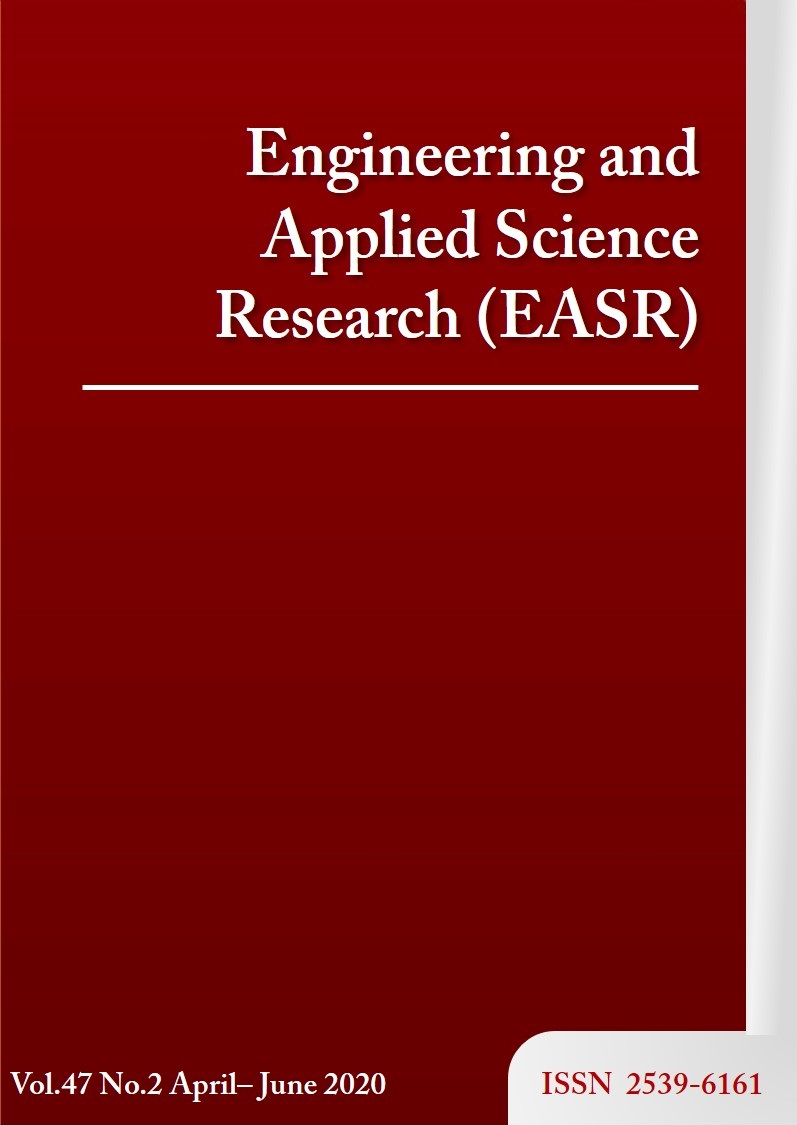Evaluating the effectiveness of maintenance practices: Case study of a university power generating plant
Main Article Content
Abstract
The study was conducted in one of the Federal universities in Nigeria. The aim was to evaluate the effectiveness of the maintenance practices in a power generating plant using an availability ratio method. The plant was placed under study for a period of six months. The operation records were obtained from which the availability ratio was obtained. Questionnaires were also distributed to the 21 staff members in the unit and oral interviews were conducted to ascertain the maintenance strategy practiced by the unit. The study revealed that the unit has an availability of 61%, which is low compared to the standard availability ratio of power generating plants (99.9%). The maintenance practices of the unit were determined ineffective. This ineffectiveness was attributed to poor documentation, low-skilled manpower, lack of a spare parts stock, and deficient operating maintenance strategy, as well as poor maintenance funding and management policy. The study recommended autonomy of the maintenance unit, a better inventory system for work materials and spare parts, practice of a predictive or condition monitoring maintenance strategy, training and retraining of the workforce and acquisition of relevant equipment, such as vehicles and computers, as measures that will, in part, improve the effectiveness of maintenance of the plant. The recommendations of this study can be applied to the power sector in Nigeria, which is considered by many to be grossly ineffective.
Article Details
This work is licensed under a Creative Commons Attribution-NonCommercial-NoDerivatives 4.0 International License.
References
Zarei S, Ghaedi-Kajuei P. Evaluation of various maintenance strategies for reliability assessment of thermal power plants. Indonesian J Electr Eng Comput Sci. 2017;7(3):617-28.
Odediran SA, Opatunji OA, Eghenure FO. Maintenance of residential buildings: Users’ practices in Nigeria. J Emerg Trends Econ Manag Sci. 2012; 3(3):261-5.
BS 3811. Glossary of Terms in Terotechnology. British Standard [Internet]. 1993 [cited 2019 Aug 28]. Available from: https://www.thenbs.com/Publication Index/documents/details?Pub=BSI&DocID=25429.
Okah-Avae BE. The science of industrial machinery and systems maintenance. Ibadan, Nigeria: Spectrum Books Ltd; 1995.
Kolawole AR. Developing maintenance culture in Nigeria: the role of facility management. The National Conference, School of Environmental Studies; 2002 Oct 29-31; Federal Polytechnic Ede, Osun State, Nigeria.
Sullivan GP, Melendez AP, Pugh R, Hunt WD. Operations & maintenance best practices – a guide to achieving operational efficiency. Release 3.0. USA: Department of Energy, USA; 2010.
Dilanthi MGS. Improving productivity with maintenance function in manufacturing industry of Sri Lanka: literature review. Int J Educ Res. 2013;1(4):1-10.
NASA. Reliability centred maintenance guide for facilities and collateral equipment. Washington, DC: National Aeronautics and Space Administration; 2000.
Iwarere HT, Lawal KO. Performance measures of maintenance of public facilities in Nigeria. Res J Bus Manag. 2011;5(1):16-25.
Vasiljevic D, Trkulja Z, Danilovic M. Towards an extended set of production line performance indicators. Total Qual Manag Bus Excel. 2014;25(5-6):618-34.
Fuanekwu J, Eniola SO. The impact of poor maintenance culture on the full utilization of residential properties in Nasarawa. Approaches Int J Res Dev. 2016;10(1):1-7.
Vaisnys P, Conti P, Rieg C, Beth M. Monitoring the effectiveness of maintenance programs through the use of performance indicators - summary report. Netherlands: Institute of Energy; 2006.
Della Villa SA, Koeneke C. Monitoring and measuring the availability and reliability performance (RAM) of one OEM’s advanced gas turbine class fleet: computation method based on continuous data collection. Amsterdam, Netherlands: Power Gen Europe; 2010.
Adeleye SI. Maintenance practice in Nigeria: policy, budgeting and legislative issues. The Sensitization Campaign on Maintenance Culture Organized. Ibadan, Nigeria: National Orientation Agency, Oyo State Directorate; 2009.
Awosope, CA. Nigeria electricity industry: issues, challenges and solutions. Public Lecture Series. 2014; 3(2):1-40.
Kolawole A, Agboola OO, Ikubanni PP, Raji OG, Osueke CO. Reliability and power loss analysis. Cogent Eng. 2019;6:1-13.
Oyedepo SA, Fagbenle RA, Adefila SS. Assessment of performance indices of selected gas turbine power plants in Nigeria. Energ Sci Eng. 2015;3(3):1-21.
Salonen A, Bengtsson M. Identification of maintenance performance indicators through stakeholder involvement. Swedish Production Symposium; Stockholm, Sweden; 2008.
Uma KE, Obidike CP, Ihezukwu VA. Maintenance culture and sustainable development in Nigeria: Issues, problems and prospects. Int J Econ Commerce Manag. 2014;2(11):1-11.
Ikuobase E, Olusegun DS, Mgbemena CO, Adeyeri MK. Electric power generation crisis in Nigeria: A review of causes and solutions. Int J Integrated Eng. 2018;10(1):47-56.
Ohajianya AC, Abumere OE, Owate IO, Osarolube E. Erratic power supply in Nigeria: causes and solutions. Int J Eng Sci Invention. 2014;3(7):51-5.



